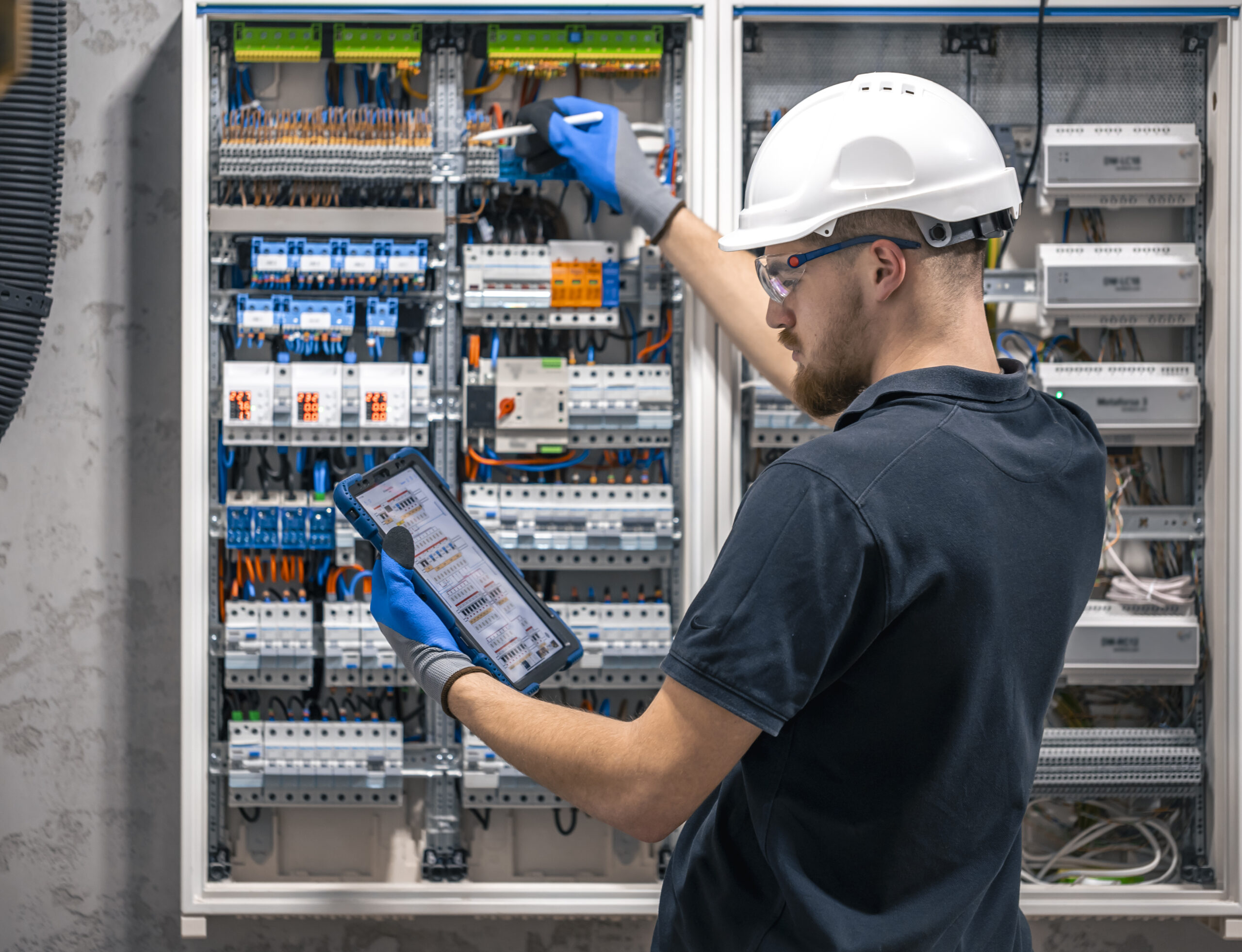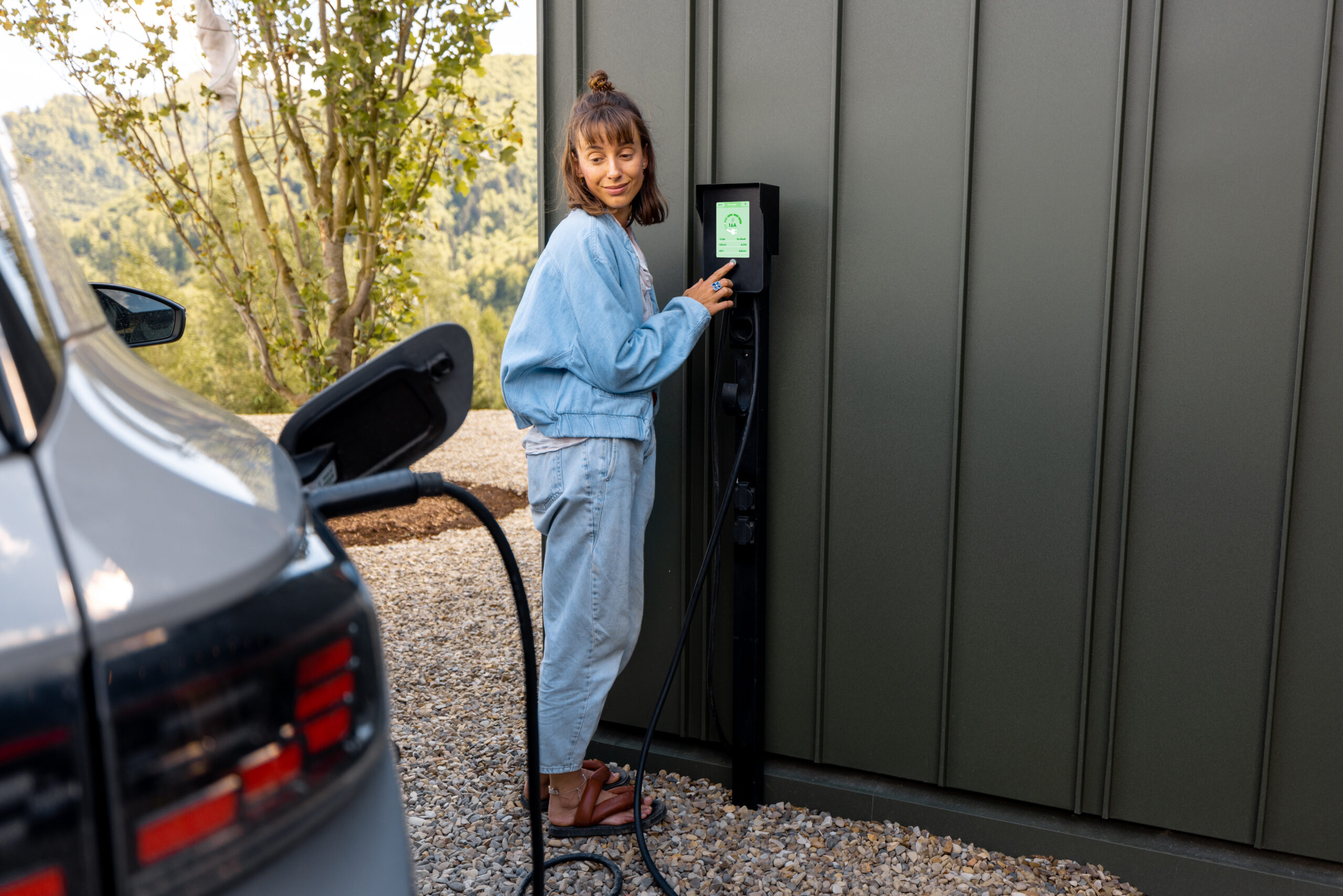When it comes to maintaining a safe and functional home, your electrical system plays a pivotal role. At the heart of this system is the electrical panel, often referred to as the breaker box. Over time, your electrical panel may require an upgrade or replacement to meet the demands of modern living and ensure safety. This blog dives deep into the topic of electrical panel replacement, focusing on the crucial question: How much is an electrical panel replacement?By the end, you’ll have a thorough understanding of costs, factors influencing pricing, and why investing in this upgrade is essential.
What Is an Electrical Panel and Why Is It Important?
An electrical panel is a metal box housing circuit breakers or fuses that control the electricity flow in your home. It distributes power from the utility company to various circuits throughout your house. Here’s why it’s crucial:
- Safety:The panel protects your home by shutting off power to circuits in the event of an overload or short circuit, reducing fire risks.
- Efficiency:It ensures your appliances and systems receive the power they need without interruption.
- Modern Demands:Many older panels cannot handle the power requirements of today’s homes, leading to frequent breaker trips and potential hazards.
Signs You Need an Electrical Panel Replacement
Before exploring costs, it’s essential to recognize when an electrical panel replacement is necessary. Common signs include:
- Frequent Circuit Breaker Trips
- Regular tripping indicates your panel may not handle your home’s electrical load.
- Burning Smell or Discoloration
- Scorch marks or a burning odor near the panel could signal overheating or damaged wiring.
- Outdated Panel
- If your home has a fuse box or a panel installed decades ago, it’s likely insufficient for modern electrical needs.
- Adding New Appliances or Circuits
- High-demand appliances like EV chargers or HVAC systems may require a panel upgrade.
- Buzzing Sounds
- Unusual noises can indicate loose wiring or internal damage.
- Home Renovations
- Expanding your home or upgrading systems may necessitate a more robust electrical panel.
How Much Is an Electrical Panel Replacement?
Cost Overview
The cost of replacing an electrical panel varies significantly based on factors such as panel capacity, labor rates, location, and any additional upgrades required. On average, homeowners can expect to spend $1,500 to $4,000for a complete replacement. Here’s a breakdown of potential costs:
| Item | Average Cost |
| Electrical Panel (100-amp) | $500 – $1,500 |
| Electrical Panel (200-amp) | $1,000 – $3,000 |
| Labor | $500 – $2,000 |
| Additional Upgrades (e.g., wiring, permits) | $500 – $1,500 |
Factors Influencing the Cost
- Panel Capacity (Amperage)
- A 100-amp panel replacement is cheaper but may not meet modern power demands. A 200-amp panel is often the standard for most homes today.
- Type of Panel
- Standard circuit breaker panels are less expensive than advanced options like smart panels, which integrate with home automation systems.
- Location of the Panel
- Replacing a panel in a hard-to-reach area or relocating it increases labor costs.
- Additional Repairs or Upgrades
- Replacing outdated wiring, grounding systems, or adding surge protectors can raise costs.
- Permits and Inspections
- Local regulations often require permits and inspections, adding $50 to $300 to the bill.
- Electrician Rates
- Labor costs vary by region, with higher rates in urban areas.
- Brand of Panel
- Panels from premium brands like Siemens or Square D may cost more but offer superior reliability.
Cost by Panel Amperage
| Amperage | Typical Usage | Estimated Cost |
| 100-amp | Small homes, minimal appliances | $1,000 – $2,500 |
| 150-amp | Medium homes with moderate electrical demand | $1,500 – $3,000 |
| 200-amp | Large homes, modern appliances | $2,000 – $4,000 |
| 400-amp | Large estates or homes with heavy power needs | $4,000 – $8,000 |
Understanding the Replacement Process

Replacing an electrical panel is a complex task that involves several steps. Here’s what to expect:
- Initial Inspection and Assessment
- An electrician inspects the existing panel, wiring, and overall system to determine the scope of work.
- Permits and Approvals
- Necessary permits are obtained from local authorities to ensure compliance with electrical codes.
- Power Shutoff
- The utility company disconnects power to the home to allow for safe replacement.
- Panel Removal
- The old panel is carefully removed, and the surrounding area is prepared for installation.
- New Panel Installation
- The new panel is mounted, and circuits are reconnected or updated.
- Testing and Inspection
- The electrician tests the system to ensure proper functionality, followed by an official inspection.
- Final Setup
- Power is restored, and the homeowner receives a detailed explanation of the new system.
Are There Additional Costs?
Yes, some situations may require extra expenses:
- Wiring Upgrades:Replacing outdated or damaged wiring can cost $1,500 to $4,000.
- Meter Box Replacement:If the meter box is old or incompatible, replacing it may add $500 to $1,000.
- Grounding System Installation:Ensuring proper grounding can cost $200 to $500.
- Relocation Costs:Moving the panel to a new location may add $500 to $2,000.
Can I Save Money on an Electrical Panel Replacement?
While you shouldn’t compromise on safety, there are ways to manage costs:
- Get Multiple Quotes
- Compare estimates from at least three licensed electricians to find the best deal.
- Plan Upgrades Strategically
- Bundle the panel replacement with other electrical projects to save on labor costs.
- Choose the Right Panel
- Avoid overpaying for unnecessary capacity or features.
- Check for Rebates
- Some utility companies or local governments offer incentives for energy-efficient upgrades.
DIY Electrical Panel Replacement: A Dangerous Myth
You may wonder if replacing an electrical panel is a DIY project. The answer is a resounding no. Electrical work is highly technical and governed by strict codes. Attempting to replace a panel without proper training can lead to:
- Serious injury or death due to electric shock.
- Fires caused by improper installation.
- Voided insurance claims for unauthorized work.
- Fines for non-compliance with local codes.
Always hire a licensed electrician for this job.
Benefits of Upgrading Your Electrical Panel

Investing in a new electrical panel offers several advantages:
- Increased Safety:Reduces fire risks and protects your home.
- Improved Power Efficiency:Supports modern appliances without frequent breaker trips.
- Enhanced Home Value:An upgraded panel is a selling point for potential buyers.
- Preparedness for the Future:Allows for adding new systems like solar panels or EV chargers.
Key Takeaways
Understanding how much is an electrical panel replacementequips homeowners with the knowledge to make informed decisions about this critical home upgrade. The cost typically ranges from $1,500 to $4,000, influenced by factors such as panel capacity, location, and additional repairs. By recognizing signs of a failing panel and acting proactively, you can enhance your home’s safety, efficiency, and value while avoiding potential hazards. Partnering with a licensed electrician ensures the work is done correctly and complies with local safety standards, offering long-term peace of mind.
As electrical demands continue to grow with advancements in technology, upgrading your electrical panel is more than just a necessity—it’s an investment in your home’s future. Whether you’re adding modern appliances, planning for solar power, or enhancing energy efficiency, a new panel prepares your home for the years ahead. If you have any questions or experiences to share about electrical panel replacements, we’d love to hear your thoughts in the comments. Together, we can ensure homeowners feel confident and empowered when tackling this essential upgrade.
People Also Ask
Why do I need to replace my electrical panel?
An electrical panel replacement is necessary when your current panel is outdated, cannot handle your home’s electrical load, or poses safety risks like overheating or frequent breaker trips. Modern panels provide sufficient capacity for today’s appliances and help prevent electrical hazards, ensuring your home stays safe and efficient.
How long does it take to replace an electrical panel?
Replacing an electrical panel typically takes 4 to 8 hours, depending on the complexity of the job and whether additional upgrades like wiring are required. This timeline includes safely shutting off power, installing the new panel, and testing to ensure everything functions correctly.
Will I need a permit to replace my electrical panel?
Yes, most jurisdictions require a permit for electrical panel replacements to ensure the work complies with local building codes and safety standards. Your licensed electrician will usually handle the permitting process and coordinate necessary inspections for compliance.
How do I choose the right size for my electrical panel?
The appropriate panel size depends on your home’s electrical demand and future needs. A 200-amp panel is the standard for most modern homes, providing ample capacity for current appliances and room for potential additions like electric vehicle chargers. Consult a licensed electrician to assess your home’s requirements.
Can a failing electrical panel cause a fire?
Yes, a failing electrical panel can lead to overheating, loose connections, or short circuits, all of which increase the risk of electrical fires. Replacing a damaged or outdated panel promptly is crucial for reducing this risk and protecting your home.
Don’t Delay: Ensure Your Panel Is Up to Code with Expert Help
Is your electrical panel ready to meet the demands of your modern home? Don’t wait for an outdated or faulty panel to compromise your safety or convenience. Trust Boca Electrical Services, Inc., with over 38 years of experience, to provide reliable and expert electrical panel upgrades tailored to your needs. Contact us today at +1 561-235-2513or visit our office at 158 NW 16th St #2, Boca Raton, FL 33432, to schedule a consultation and receive a free home safety inspection with every job.
For more insights into residential and commercial electrical solutions, explore our other services, including ceiling fan installation, surge protectors, and chandelier installations. Visit our website for tools and resources that help you make informed decisions about your electrical needs. Let Boca Electrical Services, Inc. light the way to a safer, more efficient home—reach out now and take the first step toward peace of mind.